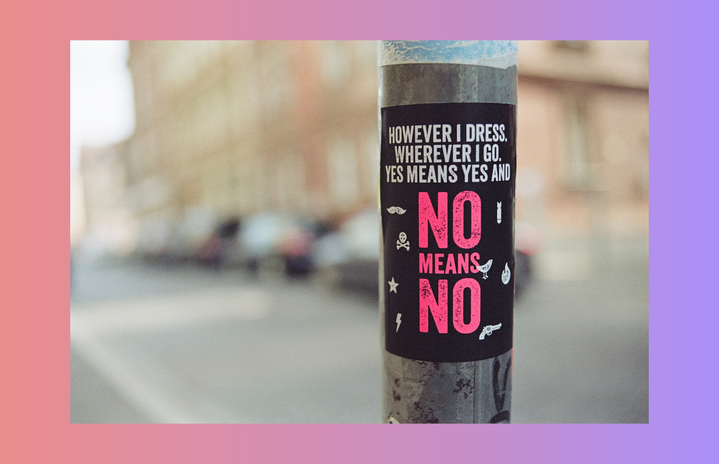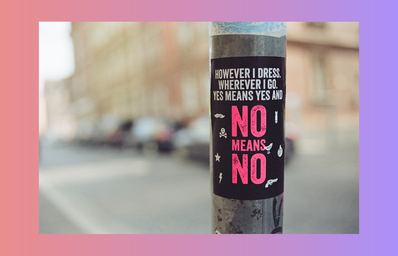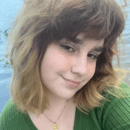As the title of this article suggests, I will be discussing matters of sexual assault and sexual violence. Please prioritize your mental health, if mentions of sexual assault, violence, or rape may trigger you, please do not read this article.
When I was 15 and a sophomore in highschool I was sexually assaulted. I had been enrolled in Catholic school from Pre-K through 12th grade. As such, sexual health and sexual violence were not taught nor disscussed. My assault was perpetrated at school and consisted of unwanted touching and being forced to perform an unwanted sexual act. At the time I knew it felt wrong, but I had never been told that it was wrong, or that anyone could help me. I stayed silent until senior year when my assaulter and I were put in the same homeroom, this meant that we would be forced to sit next to each other, three times a week for 90 minutes at a time. This pushed me to tell my family and my school in order to get my homeroom changed. My highschool agreed to change my homeroom but told me that there was nothing they could do to help me, and did not offer any outside resources. I was promptly hospitalized and put in an inpatient mental health facility for two weeks. Had I known that someone could have helped me, maybe I wouldn’t have ended up in the psych ward.
In fall semester of my freshman year at USF I was raped. I was unable to get help due to the swift decline of my mental health and kept it a secret until I no longer could. During the Spring semester of my freshman year I was able to get in contact with Victim Advocacy at USF. They were able to help me get back on track academically and mentally, and help me through the ARC withdrawals process for the classes I was failing. Thanks to victim services I was able to achieve straight As for the first time in my life.
In both situations, knowledge and awareness of what constitutes sexual assault and access to resources saved my life, and is the reason I am able to write this article today.
Sexual Assault is defined as “sexual contact or behavior that occurs without explicit consent of the victim”. This includes, but is not limited to:
- Coercion/Force
- RAINN defines coercion/force as “Perpetrators may use emotional coercion, psychological force, or manipulation to coerce a victim into non-consensual sex. Some perpetrators will use threats to force a victim to comply, such as threatening to hurt the victim or their family or other intimidation tactics.”
- Unwanted touches/fondling
- This includes any purposeful, non-consensual touching of the gentital and private areas, including the breasts, the buttock area, and includes forced kissing.
- Rape
- The FBI defines rape as “penetration, no matter how slight, of the vagina or anus with any body part or object, or oral penetration by a sex organ of another person, without the consent of the victim.”
- Attempted rape
In simple terms, if it is sexual and you did not want it, it is sexual assault. I know to some, these definitions seem redundant, but it is important to define these actions as some victims struggle with knowing whether or not their experience is valid or “bad enough” to warrant getting help. No one should make you feel invalidated, if you or anyone you know has experienced any of the aforementioned atrocities, I urge you to use one or more of the resources listed below.
The USF Center for Victim Advocacy and Violence Prevention can help with the following:
- Crisis intervention
- Safety planning
- 24/7 On call support
- Information, options, and referrals
- Assistance and filing reports
- How to support a victim training
- Emotional Support
- Court accompaniment
- University reporting process accompaniment
- Academic assistance
- Personal and systems advocacy
- Injunction for protection (restraining order)
Resource List:
- National Sexual Assault Hotline: 800-656-HOPE (4673)
- Online chat box: online.rainn.org
- Information for the Tampa Campus:
- 24/7 Victim Helpline: (813) 974-5757
- Office Phone: (813) 974-5756. Press 2 to leave a voicemail and a Victim Advocate will return your call as soon as possible
- Fax: (813) 974-8589
- Email: va@usf.edu
- Address: 4202 E Fowler Avenue, SVC 2057, Tampa, Florida 33620
- For emergencies, please call UPD: (813) 974-2628
- Information for the St. Pete Campus:
- Contact an advocate by calling the Wellness Center main line at (727) 873-4422 and selecting option 4
- After hours, you can call the Wellness Center main line and select option 2. The clients’ needs will be assessed by an on-call mental health counselor and referred to the Victim Advocate for emergency responses as needed.
- Address: 140 7th Avenue South, SLC 2200, St. Petersburg, Florida 33701
- For emergencies, please call UPD: (727) 873-4444
- For domestic violence concerns, immediate shelter, legal assistance, or law enforcement assistance, call CASA St. Pete at (727) 828-1269
- For sexual assault services and examinations, please contact Suncoast Center Sexual Assault Services at (727) 530-7273
- Information for the Sarasota-Manatee Campus:
- A campus Victim Advocate is available 24 hours a day to assist victims of crime, sexual assault, and partner violence
- 24/7 Victim Helpline: (813) 974-5757
- Office Phone: (813) 974-5756. Press 2 to leave a voicemail and a Victim Advocate will return your call as soon as possible
- Fax: (813) 974-8589
- Email: va@usf.edu
Dear survivors, we love you and we are proud of the strength it took to get here.
If you or someone you know has been sexually assaulted, you can call the National Sexual Assault Telephone Hotline at 800-656-HOPE (4673) or visit hotline.rainn.org.


